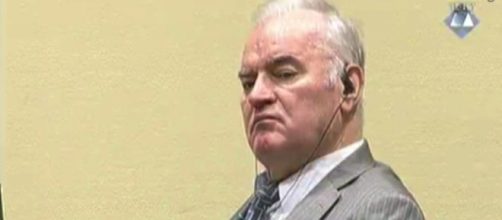Ratko Mladic, known by his enemies as the 'Butcher Of Bosnia', has been found guilty of Genocide and Crimes against Humanity and sentenced to life imprisonment at the end of his trial at the International Criminal Tribunal for the former Yugoslavia (ICTY).
War Crimes
The charges brought by the court against Ratko Mladic all related to his conduct during the wars that had broken out during the break-up of Yugoslavia in the early 1990s. Several military confrontations erupted between the former Yugoslavian republics and autonomous provinces involving the large ethnic populations that included Bosnians, Serbs, and Croats.
During this volatile period, Ratko Mladic, an officer on the former Yugoslavian army, served as commander of the Bosnian Serb army and organized several distinct military actions, the results of which led to the deaths of many innocent people and the charges of genocide and crimes against humanity being brought against him at The Hague.
Siege of Sarajevo
Mladic took command of several military campaigns during the war including the four-year siege of Sarajevo, which is the longest military siege in modern warfare. The city had all exits blocked by the forces commanded by Ratko Mladic. Within days the electricity and water were also cut off by troops under Ratko Mladic's command. The Bosnian Serb Army then fired artillery shells, tank rounds and small arms fire at the inhabitants of the besieged city.
THOUSANDS MURDERED
The Bosnian Serb Army's siege of the city, which lasted from April 1992 to February 1996, resulted in the deaths of nearly 14,000 people including more than 5,500 civilians. Also, in 1995 troops under Mladic's command overran the enclave of Srebrenica, which was protected by a small contingent of UN troops. The result was that troops under Ratko Mladic's command massacred more than 8,000 Bosnian Muslim men.
A FUGITIVE FROM JUSTICE
Following the end of the wars in the former Yugoslavia, Ratko Mladic became a fugitive after the ICTY indicted him for genocide and other war crimes. Despite a warrant being out for his arrest, he managed to remain on the run, avoiding UN and NATO troops, until his arrest in northern Serbia sixteen years after the indictments were issued.
GUILTY OF GENOCIDE
Although Mladic had earlier sat through the details of the charges and the subsequent verdicts he wasn't in the courtroom to hear the judge, Mr Alphons Orie, pronounce his sentence as he had been forcibly removed for shouting at the judges after the guilty verdicts were read out.
In all Ratko Mladic faced two charges of genocide and five charges of crimes against humanity plus several other lesser charges. The ICTY found Ratko Mladic not guilty of one of the charges of genocide but found him guilty of all the remaining charges.


